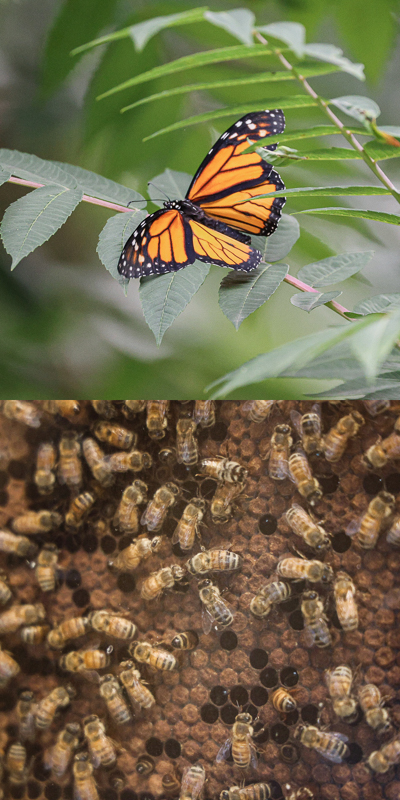To conserve monarch butterflies, Nashville Zoo joined AZA’s Monarch SAFE program in November of 2022, joining other AZA institutions participating as program partners to conserve monarch populations. The Zoo collects data annually for the Monarch Larva Monitoring Project as planted milkweed patches develop into active laying sites.
Nashville Zoo records monarch sightings on the Journey North website. This site tracks migration and life cycle events of monarchs across North America. Through our conservation efforts, we aim to raise awareness about monarch butterflies, share their migration to Mexico, and educate others on their population decline through social media and guest education.
Staff members are also trained in safely catching and tagging monarchs through the Monarch Watch program. The Zoo provides educational outreach by partnering with Stratford Stem Magnet School to teach their students and teachers how to safely catch and tag monarchs at their pollinator gardens.
Nashville Zoo’s native bird group maintains feeders throughout the Historic Farm property. Staff document any birds observed in Cornell’s eBird app. These observations help inform future conservation actions in our surrounding communities. We partner with Southeastern Avian Research for research projects including hummingbird banding. Banding these birds allows researchers to track their migration and population trends. The Historic Farm is a certified Bird Sanctuary through The Habitat Connection. Additionally, Nashville Zoo is a program partner of AZA’s North American Songbird SAFE program.
Our Native Plant group began in 2023 with a grant from the Nashville Area Beekeepers Association (NABA). The group plants educational flower beds at the Farm’s Apiary with examples of native plants that can be grown here in Middle Tennessee. There are graphics on the property that let guests know what native plants are suitable to grow in each zip code. For the Zoo’s purposes, Milkweed was propagated for the Monarch SAFE program.
Nashville Zoo’s beekeeping group began in 2022. Staff trained through NABA's Beekeeping School. The group educates guests about the hives at the Historic Farm, the history of the European honeybee, and the significant role that bees play in agriculture.
Honeybee TN donated towards the construction of a new honeybee exhibit inside the Historic Farm’s barn. Guests can view honeybees at work in an observation hive and learn about their importance to agriculture throughout history. 2024 marked the first year that the group collected honey. Our Grassmere Gold Honey is a 100% raw wildflower honey produced right here on the grounds of the Nashville Zoo! Honey can be purchased in the gift shop while supplies last.
What can you do to help?
Did you know honeybees pollinate 75% of our agricultural food crops? We encourage you to plant nectar and host plants native to your area to support all pollinators such as bees, butterflies, and hummingbirds. To learn more about native plants in your area, visit this site or purchase from local nurseries.
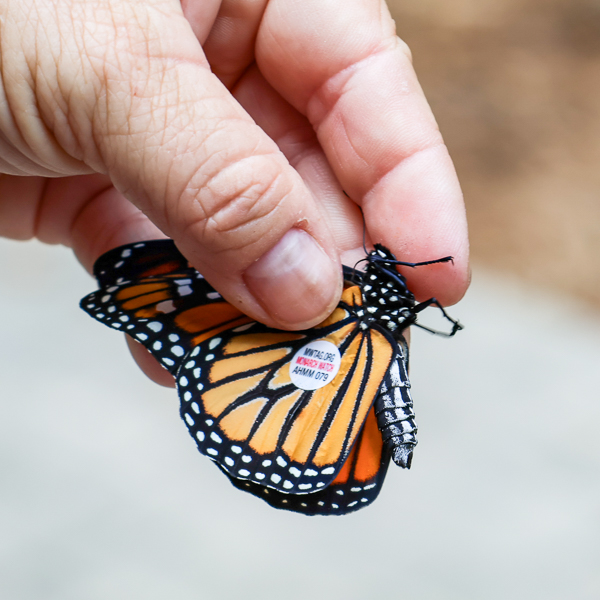
Tagging Monarchs
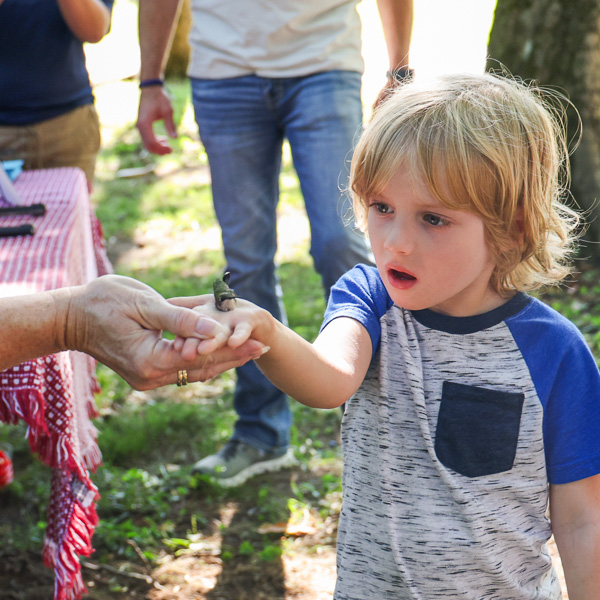
Hummingbird Banding Release
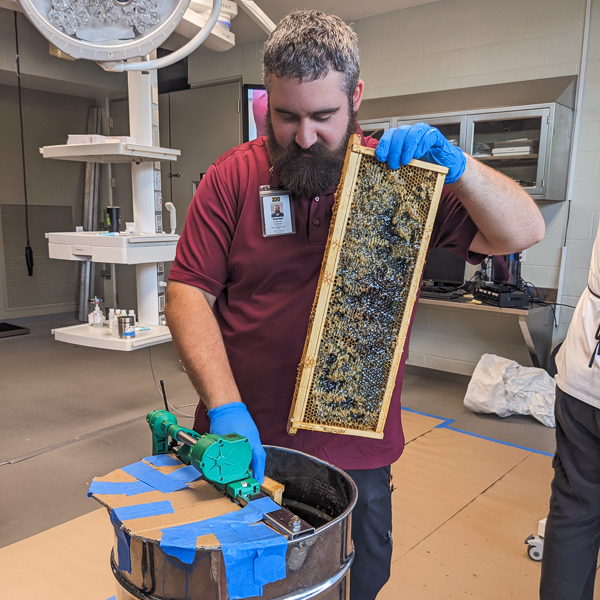
Honey Extraction at the Zoo
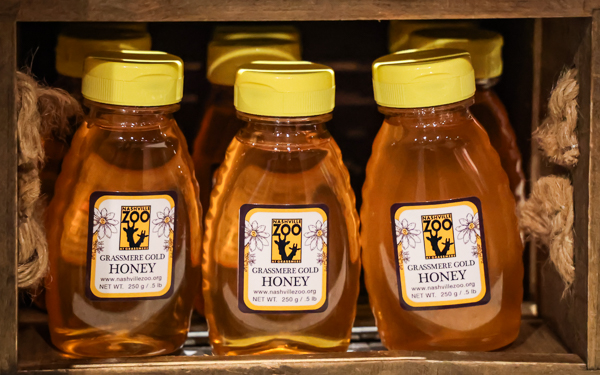
Grassmere Gold Honey

